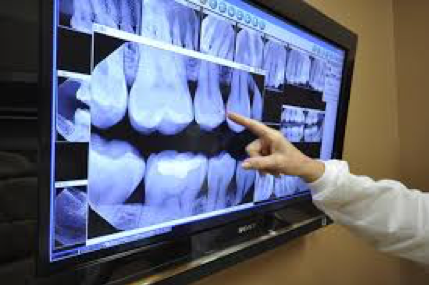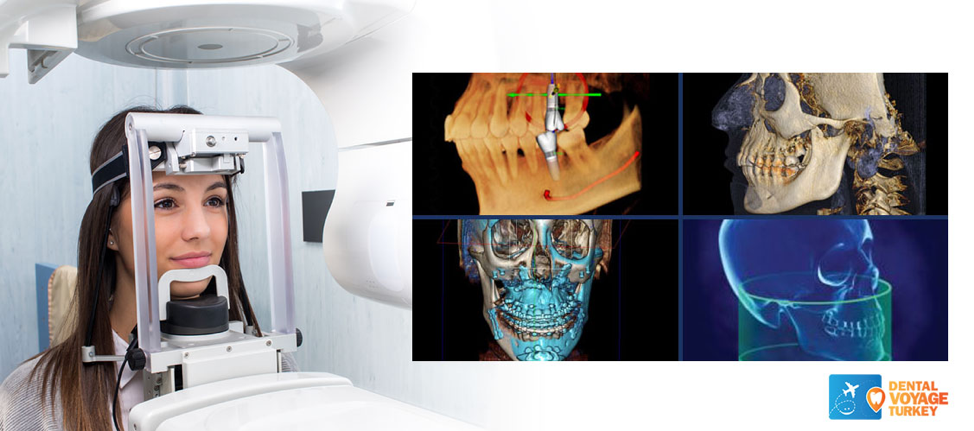Ask the Dentist
General Dentistry
Many people don’t see a dentist on a regular basis. They go only when they feel they have a problem. At Greeson Dentistry we call this “crisis treatment” as opposed to “preventive treatment”.
While these patients may feel they are saving money, it usually ends up costing much more in both dollars and time. The reason for this is that most dental problems don’t have any symptoms until they reach the advanced stages.
An example is tooth decay. At Greeson Dentistry we hear all the time, “Nothing hurts… I don’t have any problems”. But tooth decay doesn’t hurt! Until, that is, it gets close to the nerve of the tooth. Then a root canal and crown are usually necessary, instead of the small filling, which could have been placed several years ago when the cavity was small. This would save you both your money and time.
Dr. Greeson can usually detect a cavity 3-4 years before it may develop any symptoms. It is not uncommon to see a patient with a tremendous cavity and they have never felt a thing!
Diets low in certain nutrients reduce resistance to oral and dental infections, that is, periodontal disease (gum disease) and decay. Dr. Greeson feels a healthy immune system is essential to controlling periodontal disease.
Counseling in the Four Basic Food Groups will improve dental and general health. The consumption of sugar, especially in sticky forms or in a baby bottle while sleeping, contributes to the rapid development of dental decay.
The trace nutrient fluoride, may not be adequately supplied by bottle or municipal water supplies throughout your local area. Supplementation with oral tablets and topical application will reduce the incidence of dental decay by more than 60%.
Together, a balanced diet, daily use of fluoride, effective brushing, flossing and sensible eating habits can reduce the risk of, or even prevent, infectious dental disease.
Please don’t hesitate to call Greeson Dentistry at (336) 227-2706 if you need more information on diet or fluoride supplementation and its relationship to dental health.
Fluoride, in proper dosage, has been shown to significantly reduce dental decay. When fluoridated water has less than the ideal amount or is not available, fluoride supplements are recommended. A call to your local water district is all that is necessary to determine whether your water has fluoride or not.
When supplements are needed, the administration of fluoride supplements should begin shortly after birth and continue through the time of eruption of the second permanent molars (approximately 12 years of age).
Regular dental check-ups at Greeson Dentistry should begin no later than 18 months of age.
Fluoride has been a great benefit to patients of all ages in helping prevent dental decay. Regular brushing and flossing lowers the chance of developing “cavities.”
At Greeson Dentistry we know that the most decay-prone areas of teeth are the grooves and depressions on the chewing surfaces of the back teeth, which require further preventive care.
To prevent decay, a plastic-like coating called a sealant should be painted on the chewing surfaces of all the back teeth. Studies have shown that sealants can reduce tooth decay by as much as 90% to 100%.
The American Dental Association recommends, and Dr. Greeson agrees, that sealants be placed as soon as the first adult back teeth come in at age 6 or 7. Sealants should continue to be used as each adult back tooth comes into the mouth. All back teeth that need to be sealed are present by age 13. Sealant application is simple, fast, and painless.
Please call Greeson Dentistry with any questions you may have about the benefits using a sealant in preventing dental decay.
One of the easiest problems to spot is a build-up of plaque. Plaque is the soft, sticky layer of bacteria, which is constantly forming on the teeth.
Usually it is invisible to the naked eye, but when a person is not brushing adequately, it can build up to where it appears to be a thick whitish coating on the teeth at the gum line. If not removed, it can lead to gum disease.
Another potential problem, which is easy to spot, is missing teeth. Many patients Dr. Greeson sees assume that if they are still able to eat, they are O.K.
But very often, losing just one tooth can lead to the loss of support, and teeth begin to drift into the empty space, causing a change in the bite. It also forces the remaining teeth to carry an additional load, sometimes past their ability to adapt. In most cases, when even one tooth is lost, the remaining teeth suffer and are more likely to be lost as well.
At Greeson Dentistry we know that the most decay-prone areas of teeth are the grooves and depressions on the chewing surfaces of the back teeth, which require further preventive care.
To prevent decay, a plastic-like coating called a sealant should be painted on the chewing surfaces of all the back teeth. Studies have shown that sealants can reduce tooth decay by as much as 90% to 100%.
The American Dental Association recommends, and Dr. Greeson agrees, that sealants be placed as soon as the first adult back teeth come in at age 6 or 7. Sealants should continue to be used as each adult back tooth comes into the mouth. All back teeth that need to be sealed are present by age 13. Sealant application is simple, fast, and painless.
Please call Greeson Dentistry with any questions you may have about the benefits using a sealant in preventing dental decay.
“First visit by first birthday” sums it up. Your child should visit a dentist when the first tooth comes in, usually between six and twelve months of age. An early examination at Greeson Dentistry and preventive care will protect your child’s smile now and in the future.
Click here to view and download our Privacy Practices.
Bad Breath
Dr. Greeson feels that while bad breath might be a symptom of some other disorder, it most likely stems from dental decay and periodontitis.
Periodontitis is a disease affecting gums and bone that support the teeth, and it results from inadequate tooth brushing and flossing. In this disease, the irritated gums pull away from the teeth and form pockets between the teeth and the gums. These pockets fill with bacteria and pus which give off a foul odor.
Patients with bad breath need a complete dental evaluation by Dr. Greeson. If gum disease and/or dental decay is diagnosed, it can be treated readily. The patient will no longer have an infection in his or her mouth, and he or she will no longer have the embarrassment of bad breath.
Mini Dental Implants
A mini dental implant is a titanium metal replacement for a root of a tooth that is surgically implanted in the jawbone.
Mini dental implants are immediate loaded whereby they are placed and either a crown is cemented on top of them or your denture is secured to them immediately.
There is no lengthy healing phase and no second stage surgery.
Mini dental implants are the most natural replacement for a missing tooth.
For more information call us at (336) 227-2706.
At Greeson Dentistry we begin with a thorough evaluation of the patient’s medical and dental history, and a full clinical examination of the entire mouth and missing tooth area. The clinical exam should also include specific X-rays.
After assessing the patient, a comprehensive treatment plan can be devised. From that point, mini implants are surgically placed in the jawbone under local anesthesia.
Less bone is needed for mini dental implants because they are less than 2 mm in diameter in some cases.
This is a question that should be determined during the treatment plan. A good rule-of-thumb is to place one implant for each tooth replaced, but sometimes two are needed.
Other decisive factors for the number of implants needed for success is the quality and quantity of the patient’s bone. Equally as important are the existing anatomy of the bone and the financial resources of the patient. At Greeson Dentistry we try not to let money get in the way of good dentistry.
Placing enough implants to restore teeth is vitally important to the long-term success of the restoration. Simply stated, the most costly mistake is to have an implant fail because not enough implants are placed to support the teeth. If the number of implants is limited due to financial constraints of the patient, then the implant treatment should be avoided or the type of restoration must be altered. At Greeson Dentistry we have payment options to suit individual patients’ financial needs.
When getting dental implants, you should select a dentist or dental team with in-depth knowledge and prior experience with all aspects of the treatment. At Greeson Dentistry we have this expertise.
It is also important to know that implant treatment consists of two components: a surgical phase and a restorative phase.
Traditionally, a dental surgeon, like an oral surgeon or a periodontist, performs the surgical component. A general dentist, or prosthodontist and laboratory technician performs the restorative component. However, as mini implant dentistry has become more sophisticated, we specialize in both the placement of the implant and the restoration of the implant.
Yes, several types are available. The American Dental Association considers both the endosteal and the subperiosteal implants to be acceptable.
Tooth Whitening
Advanced dental techniques now provide consumers with exciting, new options for enhancing their smiles. Revolutionary methods are now available for bleaching teeth to make smiles sparkle!
Teeth bleaching or whitening lightens the color of teeth whether darkened from age, coffee, tea or tobacco. Its brightening effects can last up to five years after the treatment depending on your personal habits, such as smoking or drinking coffee or tea.
Bleaching has a higher than 90% success rate. Bleaching is tough on stains but gentle on your teeth! Results vary depending on several factors such as teeth stained from smoking; from taking certain medications such as tetracycline during tooth development; or from fluorosis, a condition occurring in the presence of too much fluoride.
Bleaching will not lighten fillings or artificial materials used in dental repair as for crowns, porcelain veneers, etc. Your dentist may discourage treatment if you have sensitive teeth, periodontal disease, teeth with worn enamel or if you’re pregnant or breast-feeding.
Behind the Technology

We utilize a Kodak 9000 cone beam CT scan to create three-dimensional images of your jaws. This information helps us to better evaluate wisdom teeth, bone density and bone volume. It is of great benefit for planning dental implant treatments by helping determine precise locations to create a very predictable end result.
This state-of-the-art unit minimizes radiation exposure without giving up quality.
Imagine being able to see what your new, enhanced smile will look like before treatment begins. It’s possible with our digital imaging system.
Using computers and special cosmetic software programs we can evaluate your smile, determine the best treatment options and discuss the details of your treatment plan. Best yet, we can show you before and after images of your smile before we begin any dental procedure.
This system is an excellent tool for determining which treatment methods will work best to give you the smile you desire.
